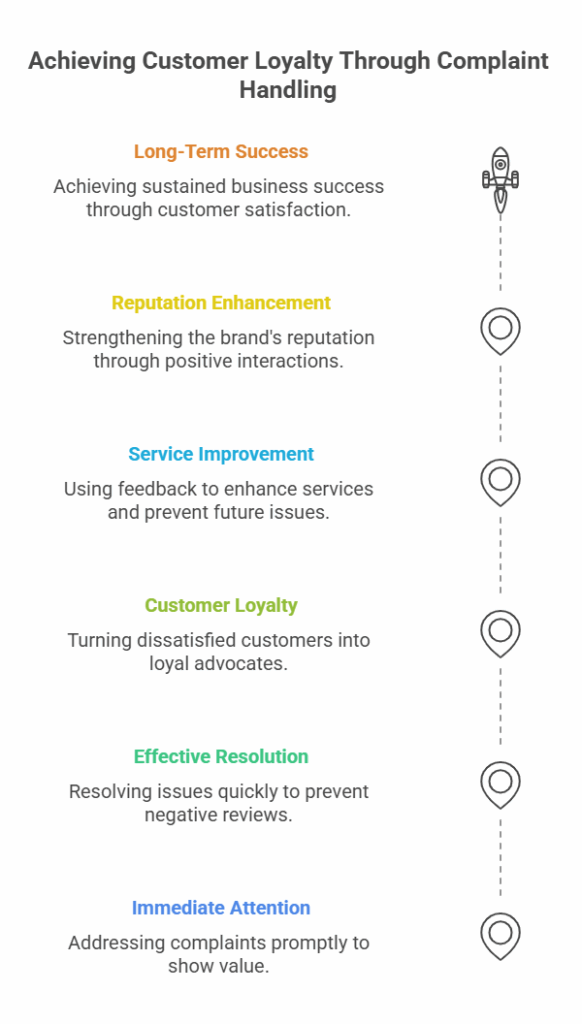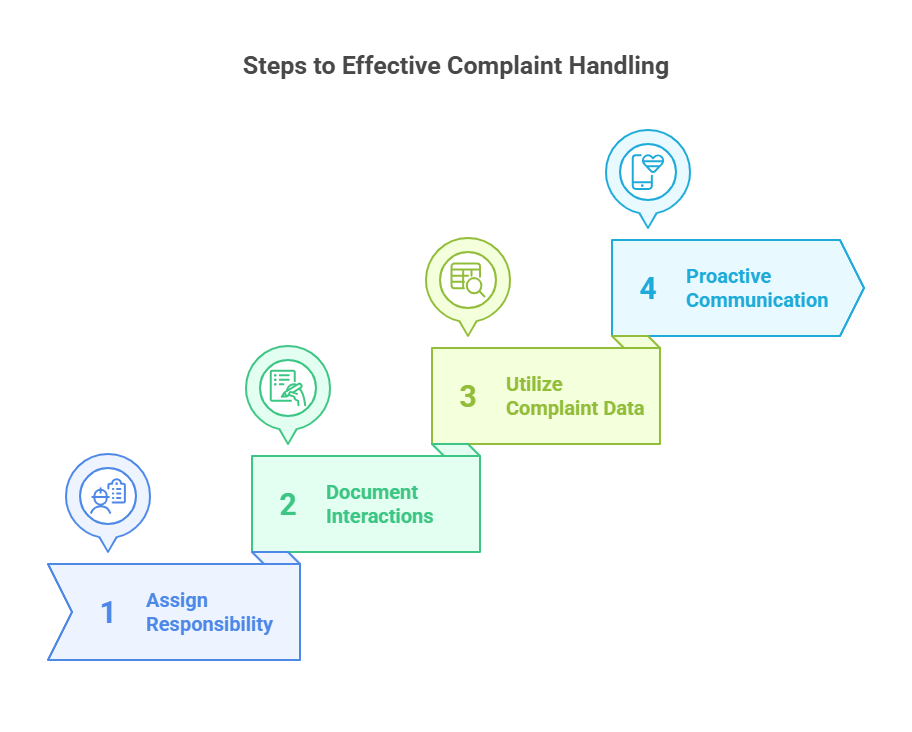In the home service industry, effective and timely handling of customer complaints is crucial not only for maintaining a good reputation but also for ensuring long-term customer retention. Complaints can arise for various reasons, whether it's a missed appointment, unsatisfactory service, or poor communication. Addressing these complaints promptly and efficiently is essential, as it reflects your commitment to customer satisfaction. A happy customer is your best advocate, and they can help grow your business through positive word-of-mouth. This post explores the best practices for managing complaints efficiently and intelligently. We'll delve into common challenges faced in complaint handling, effective use of CRM systems, and actionable steps to improve your processes. By the end of this article, we will share some home service customer complaint handling best practices for improvement and growth.
Understanding the Importance of Efficient Complaint Handling
In an industry reliant on trust and satisfaction, every complaint needs immediate attention. When customers voice concerns or issues, how you respond can make or break their trust in your brand. Addressing complaints promptly and professionally shows customers that you value their experience and are committed to making things right.
Quick and effective complaint resolution not only prevents negative reviews but can also turn dissatisfied customers into loyal advocates.
It provides valuable feedback that helps you improve your services and avoid future problems.
Ultimately, mastering efficient complaint handling strengthens your reputation, enhances customer satisfaction, and supports long-term business success.
Common Pain Points in Complaint Management
Before diving into solutions, it's important to understand the common challenges faced in handling customer complaints within the home service industry. Recognizing these pain points is the first step towards effectively resolving them.
- Missed Follow-Ups: Often, complaints are acknowledged but not consistently followed up. This leads to customer frustration and portrays a lack of concern from the business.
- Lack of Visibility: Without a centralized system, it becomes difficult to keep track of where each complaint stands. Customers and employees alike are left in the dark, causing dissatisfaction and inefficiency.
- Inconsistent Resolutions: Different team members handling complaints may lead to varying resolution approaches and outcomes, which can confuse customers and lead to dissatisfaction.
Understanding these pain points can help you tailor your complaint management approach, ensuring that each issue is resolved consistently and efficiently. By addressing these challenges, businesses can significantly improve their complaint handling process, leading to higher customer satisfaction and loyalty.
Leveraging CRM for Streamlined Complaint Handling
How can technology help in managing customer complaints more efficiently in home service businesses? Enter Customer Relationship Management (CRM) systems. These systems are designed to keep your complaint handling process organized and efficient.
- Ticketing Systems: CRMs with ticketing system can transform customer complaints into trackable tickets. Each ticket is logged, categorized, and prioritized, ensuring every issue is acknowledged and addressed systematically.
- Complaint Tracking: With CRM, you can easily monitor the status of a complaint. This allows your team to remain updated on every ticket's progress, ensuring timely resolutions.
- Automated Alerts: CRMs can set automated alerts for follow-ups, ensuring no complaint goes unnoticed or forgotten, which enhances accountability and reliability.
- Communication Logs: Keeping detailed records of all communications related to a complaint helps in maintaining transparency. It provides accountability and ensures that no details are lost.
By integrating these features, CRM systems empower businesses to manage customer feedback efficiently and proactively. They not only streamline the complaint management process but also enhance customer satisfaction by ensuring every concern is promptly addressed.
Best Practices for Effective Complaint Handling
- Assigning Responsibility: Ensure every complaint is assigned to a responsible team member to prevent it from falling through the cracks. When someone is accountable for follow-ups, complaints are more likely to be resolved promptly and effectively.
- Documenting All Interactions: Keeping a detailed record of all customer interactions helps in tracking progress and aids in training. A comprehensive log not only assists in resolving current issues but also serves as valuable training material for new staff.
- Utilizing Complaint Data: Use data from complaints for service improvements to prevent future issues and enhance customer satisfaction. Analyzing complaint trends and common feedback can provide insights into areas needing improvement.
- Proactive Communication: Regularly reach out to unhappy customers, even before a complaint is lodged, to show commitment towards resolution. Proactive engagement shows your customers that you value their satisfaction and are committed to addressing their concerns quickly.
Implementing these best practices can significantly improve your complaint handling process, leading to better customer relationships and business growth. They enable businesses to not only resolve current complaints effectively but also prevent future ones from arising.
How Fuzen Elevates Complaint Management
Customizing your complaint management workflow has never been easier with Fuzen. It offers an innovative approach to handling customer complaints efficiently and cost-effectively within your existing CRM setup. Here's how Fuzen makes a significant difference:
- Tailored Systems: Fuzen allows you to build a customized complaint management system in your CRM. This personalized approach ensures that your unique business needs are met, leading to top-notch customer satisfaction.
- Cost-Effective Solutions: By leveraging Fuzen, you save on substantial costs. Unlike typical solutions that require significant investment, Fuzen operates at a fraction of the cost, primarily charging only for hosting, making it an affordable option for businesses of all sizes.
- AI Integrations: With Fuzen's robust AI integrations, you can automate various aspects of complaint handling. This not only speeds up the resolution process but also frees up your team's time to focus on more critical tasks.
- Scalability: As your business grows, Fuzen's scalable solutions ensure that your complaint management process can expand seamlessly. This adaptability is essential in maintaining high levels of customer satisfaction.
With these features, Fuzen empowers businesses to enhance their complaint management process, leading to better customer experiences and improved business outcomes.
Conclusion
To sum up, effective complaint handling in the home service industry calls for a blend of technology, strategic planning, and ongoing customer engagement. Addressing complaints efficiently is vital for maintaining a good reputation and fostering customer loyalty.
With tools like Fuzen, achieving these goals becomes more accessible and cost-effective. Fuzen enables businesses to implement robust complaint management systems without heavy expenses, ensuring your operation thrives on a foundation of excellent customer service.
By prioritizing these practices, you not only resolve current complaints but also prevent future issues, paving the way for enhanced customer satisfaction and business success.

Pushkar is a seasoned SaaS entrepreneur. A graduate from IIT Bombay, Pushkar has been building and scaling SaaS / micro SaaS ventures since early 2010s. When he witnesses the struggle of non technical micro SaaS entrepreneurs first hand, he decided to build Fuzen as a nocode solution to help these micro SaaS builders.



